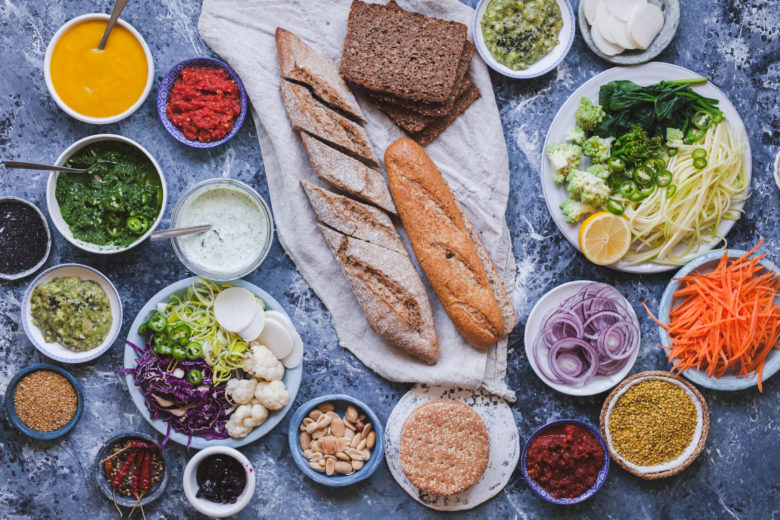
There’s no denying more and more people have started to adapt a plant-based lifestyle. With recent documentaries like Forks over Knives, Fat Sick and Nearly Dead and Food Inc. turning into mainstream hits, the case for vegetarianism is in the national discussion.
Vegetarians do not eat meat, fish or poultry; while vegans abstain from all animal products including milk, cheese, dairy, eggs and honey. While there are many reasons for choosing this diet, most proponents cite some combination of better health, ecological concerns, religious concerns, dislike of meat, compassion for animals, economics and a belief in non-violence.
While vegetarian and vegan diets aren’t always healthier than an omnivores, consuming more plant-based foods has shown to have both cardiovascular and BMI benefits. The key to a healthy vegetarian diet — like any diet — is consuming a wide variety of foods including plenty of vegetables, fruits, whole grains, nuts, legumes and seeds. Limiting intake of sugar, cholesterol, and saturated fat is good advice no matter what diet plan you follow.
Being a vegetarian or vegan is as healthy or as unhealthy as you choose to make it. Cookies, potato chips, and soy ice cream are all vegan — but that doesn’t mean they are nutritious. As with any diet, the foods you consume the most have the biggest impact on your overall health. For instance, protein, iron, B12 and calcium are all nutrients that we tend to associate with meat and dairy. While those foods are good sources of those above nutrients, it doesn’t mean they are the only source.
Vegetarians and vegans can easily meet their protein needs by eating a varied diet with enough calories to maintain weight. Popular juice fasts are not just low in calories, they are low in protein too, and shouldn’t be followed for any extended period of time. It was originally thought that you needed to plan combinations of foods to get the right mix of amino acids as a vegetarian. That statement has been debunked; we now know that a mixture of proteins throughout the day will provide enough essential amino acids. Good sources of protein include tofu, nuts, seeds, tempeh, beans, seiten and more.
Iron and calcium, two nutrients of note for most adults, especially women, are also easily found in plant foods. Kale, spinach, tofu, tempeh, beans and mushrooms are all good sources of iron. Broccoli, collard greens, tofu, mustard greens and fortified foods contain calcium. These foods are also very low in calories, low-fat and do not contain any cholesterol, an added benefit in consuming more leafy greens.
Unfortunately, it is very difficult to get enough vitamin B12 through plant-foods alone. Vegetarians might be able to get adequate amounts if they include eggs or dairy in their diet. Vegans will have a more difficult time unless they rely heavily on fortified foods. Vegetarian or not, it’s important to know your B12 levels. Next time you get blood work done, talk to your MD about adding a B12 test. Since aging adults can be low in this nutrient, it’s important to know if you should be supplementing. I recommend a B12 supplement to all my vegetarian or vegan clients.
Whether you are looking to include more Meatless Mondays or making the full on switch, a vegetarian or vegan diet can be a healthful, nutritionally adequate diet for individuals of all ages. Need some inspiration? Check out my website, Delicious-Knowledge.com, for healthy, plant-based recipes!



